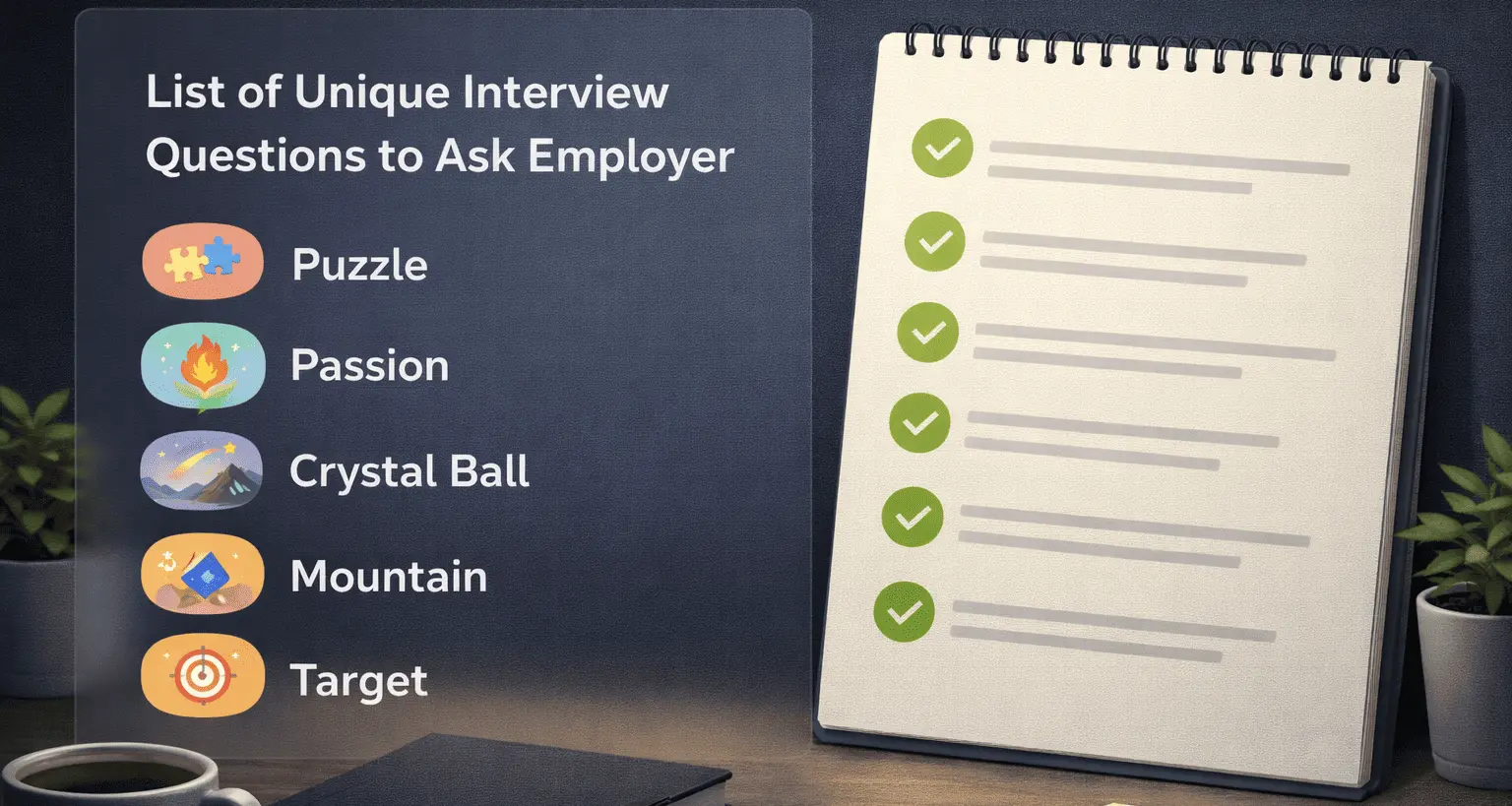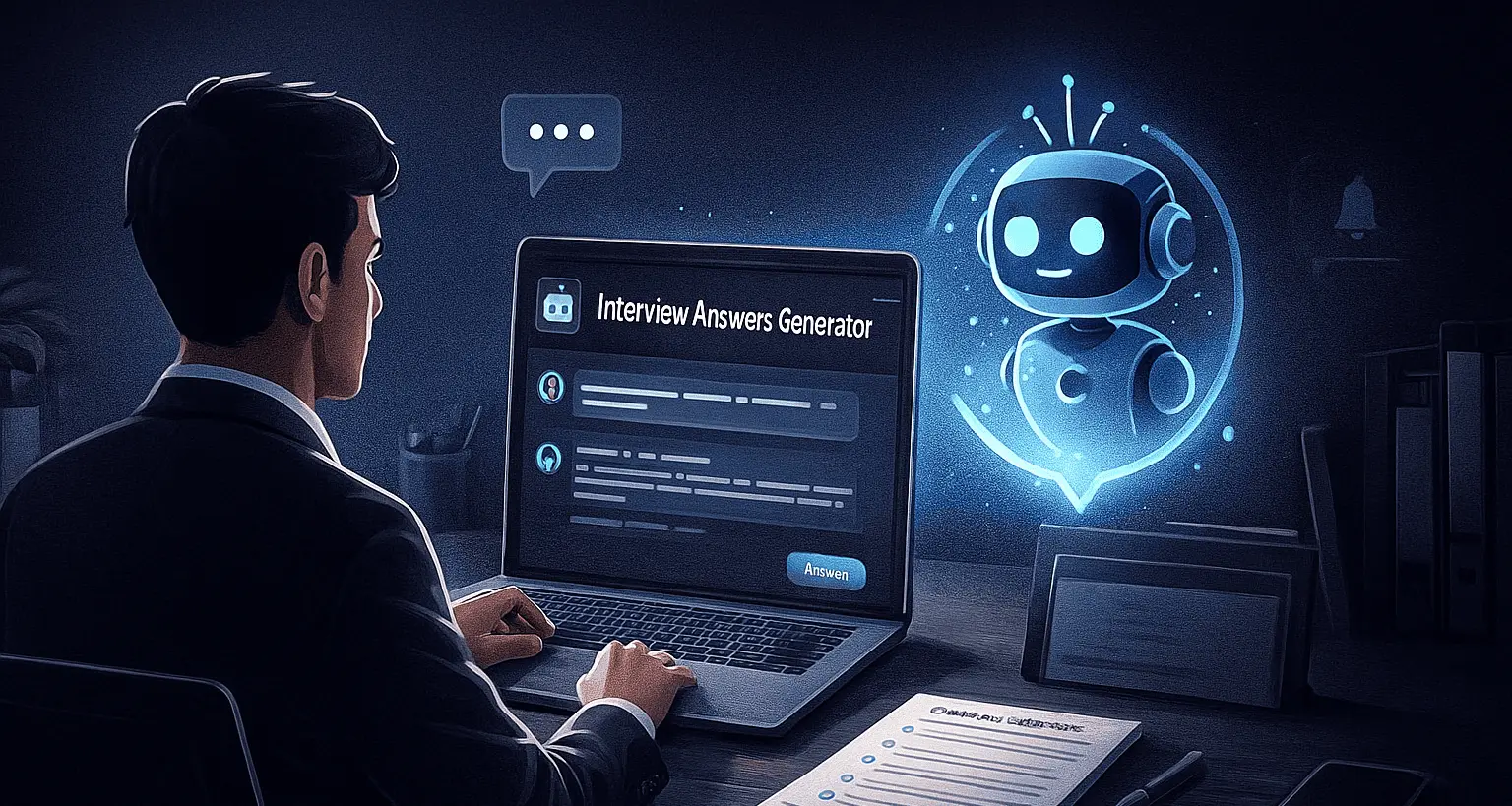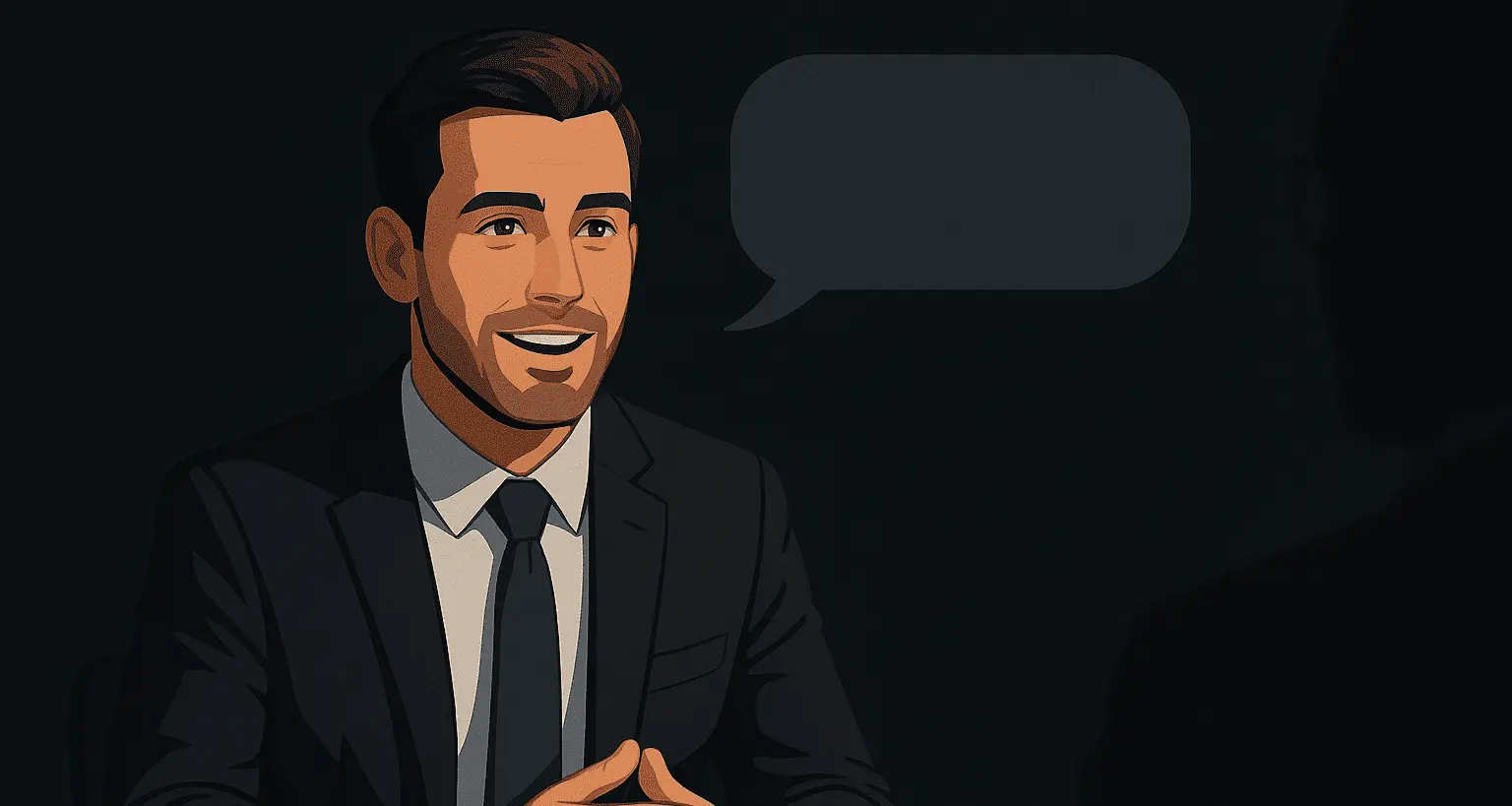Let's face it—job interviews can be nerve-wracking. That knot in your stomach as you walk in, wondering if you'll freeze up or say the wrong thing? We've all been there. But here's the good news: practicing mock interview questions is like having a secret weapon. It turns that anxiety into quiet confidence, helping you walk in ready to shine. Whether you're eyeing a marketing gig, a tech role, or something in healthcare, these simulated questions let you rehearse responses that feel natural and spot-on.
I've chatted with hundreds of job seekers over the years, and the ones who land offers? They didn't wing it. They prepped with mock scenarios that mirrored the real deal. Think of it as a dress rehearsal for your career stage. In this guide, we'll dive deep into why these practice sessions matter, share a ton of examples across categories, and walk you through how to make your rehearsals count. By the end, you'll have a toolkit to tackle any interview curveball. And after you ace your interview, learn how to craft a thank you email to leave a lasting impression.
Why Bother Practicing Interview Questions? It's Not Just Busywork
You might think, "I've got my resume locked down—why waste time on pretend questions?" But trust me, these aren't fluff. They're your crash course in interview dynamics. For starters, they expose those "uh-oh" moments early. Ever blanked on a simple "tell me about yourself"? Practicing fixes that before it costs you a job.
More than that, they build muscle memory for storytelling. Interviews aren't pop quizzes; they're conversations where you sell your fit. Rehearsing helps you weave experiences into compelling narratives without sounding scripted. And let's not forget the feedback loop—whether from a friend or an AI tool, it sharpens your delivery, from eye contact to pacing.
Stats back this up too. A study from Glassdoor found that 92% of recruiters say preparation makes a huge difference in candidate performance. Plus, in a world where remote interviews are the norm, mock practice levels the playing field. No more fumbling with Zoom backgrounds or awkward silences. It's practical, it's proven, and it's the edge you need in a competitive job market.
But it's not all about the big leagues. Even if you're switching careers or re-entering the workforce after a break, these simulated scenarios help you bridge gaps. They let you practice pivoting from "I don't have direct experience" to "Here's how I'd apply my skills." It's empowering, really—turning "what if I mess up?" into "I've got this."
How to Get the Most Out of Your Interview Practice Sessions
Alright, so you're sold on the idea. Now, how do you actually do this without it feeling like homework? Start simple: Grab a quiet spot, set a timer for 45-60 minutes (to mimic interview length), and treat it like the real thing. Dress up if it helps, or keep it casual—whatever gets you in the zone.
Pick a mix of questions from below, and record yourself. Yeah, it feels weird at first, but watching playback reveals gems like "I say 'um' way too much" or "My smile could use some warmth." Follow up by journaling: What nailed it? What bombed? Adjust and retry.
Pro tip: Alternate between solo runs and partner practice. A buddy can throw curveballs, like follow-ups ("Why'd you choose that project?"), keeping things fresh. And if you're solo, apps or AI platforms (more on that later) can simulate a live interviewer. Aim for 3-5 sessions a week leading up to your big day. Consistency beats cramming every time.
One more thing: Tailor to the job. Scan the description for buzzwords—leadership, innovation, customer focus—and weave sample questions around them. This isn't generic prep; it's personalized armor for your specific battle.
50+ Mock Interview Questions: Broken Down by Type
Here's the meat of it—a hefty list of mock interview questions to fuel your sessions. I've grouped them into behavioral, technical, situational, and those sneaky "tell me about" openers. For each, I've tossed in quick tips on how to respond, plus sample answers to spark your own. Mix and match based on your field.
Behavioral Interview Questions (Past Experiences)
These dig into your history to predict future performance. Use STAR: Situation, Task, Action, Result. Keep stories under 2 minutes—punchy and relevant.
- Tell me about a time you faced a tight deadline. (Tip: Show prioritization. Sample: "In my last role, our team had to launch a campaign in half the time. I broke it into phases, delegated research, and we hit the mark—boosting engagement by 25%.")
- Describe a conflict with a coworker and how you resolved it. (Tip: Focus on empathy. Sample: "A colleague and I clashed on project direction. I scheduled a coffee chat, listened to their concerns, and we compromised on a hybrid approach that satisfied the client.")
- Give an example of when you went above and beyond for a customer. (Tip: Quantify impact. Sample: "A client was frustrated with delays. I stayed late to expedite their order, turning a complaint into a glowing review and repeat business.")
- How have you handled failure in a team setting? (Tip: Emphasize growth. Sample: "Our group pitch flopped due to miscommunication. I owned my part, suggested weekly check-ins moving forward, and our next win was seamless.")
- Tell me about a time you led a project to success. (Tip: Highlight collaboration. Sample: "I spearheaded a website redesign, rallying designers and devs. We launched on time, cutting load times by 40% and upping user satisfaction.")
- Share a situation where you adapted to change quickly. (Tip: Stress flexibility. Sample: "When our company pivoted to remote work overnight, I quickly set up virtual tools and trained my team, keeping productivity steady.")
- Describe innovating to solve a problem at work. (Tip: Be specific. Sample: "Sales tracking was manual and error-prone. I built a simple dashboard in Google Sheets, saving hours weekly and spotting trends faster.")
- How did you mentor or support a junior colleague? (Tip: Show patience. Sample: "I paired with a new hire, sharing resources and weekly feedback. They hit their targets in record time and now lead their own projects.")
Technical Interview Questions (Skills Deep Dive)
For roles needing expertise, these test your chops. Explain as you go—interviewers love the "why" behind the "how." Practice with a whiteboard or code editor handy. For engineering roles, check out our system design mock interview guide.
- Walk me through your experience with [specific tool, e.g., Excel/SQL]. (Tip: Give a project example. Sample: "I've used SQL for querying large datasets; in one analysis, I optimized a join to shave query time from minutes to seconds.")
- How would you debug a crashing app? (Tip: Step-by-step logic. Sample: "Start with logs, isolate variables, reproduce the error, then test fixes iteratively—caught a memory leak that way last month.")
- Explain a complex concept simply, like blockchain to a newbie. (Tip: Use analogies. Sample: "It's like a shared Google Doc that no one can edit without group consensus—secure and transparent.")
- Design a basic database schema for [e.g., an e-commerce site]. (Tip: Normalize entities. Sample: "Tables for users, products, orders; relationships via foreign keys to avoid redundancy.")
- What metrics would you track for a marketing campaign? (Tip: Tie to goals. Sample: "CTR, conversion rate, ROI—focusing on what drives bottom-line growth.")
- How do you stay current with industry trends? (Tip: Name sources. Sample: "Podcasts like 'Marketing Over Coffee,' newsletters, and hands-on experiments with new tools.")
- Code a simple function, like reversing a string. (Tip: Think aloud. Sample: "In Python: def reverse(s): return s[::-1]—efficient and built-in.")
- Discuss scalability in software design. (Tip: Layers matter. Sample: "Use microservices, caching, and load balancers to handle growth without breaking.")
Situational Interview Questions (Hypotheticals)
These "what ifs" gauge your judgment. Structure with problem-solving steps: Assess, Plan, Act, Review.
- What would you do if a client was unhappy with your work? (Tip: Listen first. Sample: "Apologize sincerely, ask for specifics, brainstorm fixes, and follow up to ensure satisfaction.")
- How would you handle missing a team deadline? (Tip: Own it proactively. Sample: "Notify ASAP, renegotiate timelines, and add buffers in future planning.")
- If two bosses gave conflicting priorities, what then? (Tip: Escalate smartly. Sample: "Clarify with both, propose a compromise, and loop in if needed for alignment.")
- You're overwhelmed—how do you manage workload? (Tip: Prioritize ruthlessly. Sample: "Triage tasks by urgency/impact, delegate where possible, and protect focus time.")
- What if you spotted unethical behavior at work? (Tip: Values first. Sample: "Document facts, report via channels, and seek HR guidance to handle discreetly.")
- How would you approach a new project with unclear specs? (Tip: Seek clarity. Sample: "Stakeholder interviews, create a rough scope, iterate based on feedback.")
- Client budget cuts mid-project—what's your move? (Tip: Adapt creatively. Sample: "Reprioritize features, explore cost-savers, and communicate transparently.")
- Team member isn't pulling weight—how do you address? (Tip: Private, constructive. Sample: "One-on-one chat, offer support, set clear expectations with check-ins.")
Classic Openers: Those "Tell Me About" Interview Questions
These icebreakers set the tone. Keep 'em concise—1-2 minutes—and tie back to why you're a fit.
- Tell me about yourself. (Tip: Professional highlights. Sample: "I'm a project manager with 5 years in tech, passionate about agile methods. Recently led a cross-functional team to deliver under budget.")
- Why do you want this job? (Tip: Company + role match. Sample: "Your innovative culture aligns with my drive for creative solutions, and this role lets me leverage my analytics skills.")
- What are your strengths and weaknesses? (Tip: Weakness as growth. Sample: "Strength: Detail-oriented planning. Weakness: Delegating more—working on it by trusting my team leads.")
- Where do you see yourself in 5 years? (Tip: Ambitious yet realistic. Sample: "Growing into a senior strategist here, contributing to bigger initiatives while mentoring juniors.")
- Why should we hire you? (Tip: Value prop. Sample: "My blend of experience and fresh ideas will drive results—proven by my track record of 20% efficiency gains.")
- What motivates you at work? (Tip: Align with company. Sample: "Solving tough problems collaboratively—it's why I thrive in dynamic teams like yours.")
- Describe your ideal work environment. (Tip: Match theirs. Sample: "Collaborative yet autonomous, with open feedback—much like what I've read about your hybrid setup.")
- How do you handle stress? (Tip: Healthy habits. Sample: "Deep breaths, quick walks, and prioritizing—keeps me clear-headed during crunch times.")
Whew, that's over 50 mock interview questions to chew on! Don't try to memorize—internalize the patterns. Behavioral for stories, technical for demos, situational for smarts, openers for hooks. Rotate through them to keep practice lively.
Pitfalls to Dodge During Interview Prep
Practice makes perfect, but bad habits can backfire. From my coaching days, here are the traps I've seen trip folks up—and how to sidestep them.
- Sounding Rehearsed: If it feels robotic, loosen up. Practice in front of a mirror or record audio—aim for conversational flow, not a monologue.
- Over-Explaining: Rambling dilutes impact. Time yourself; if it's over 3 minutes, trim the fluff. Focus on key beats.
- Ignoring Body Language: Even on video, slouching screams disinterest. Stand tall, smile genuinely, and nod to show engagement.
- Badmouthing Past Employers: Never. Frame exits positively: "It was a great learning ground, but I'm excited for new challenges here."
- Skipping Questions Back: End with your own! "What's the team's biggest win this quarter?" It flips the script and shows curiosity.
- Not Customizing: Generic answers flop. Swap in real examples from your life—authenticity wins hearts.
- Forgetting Follow-Ups: Interviewers probe. Prep branches: If they ask "Tell me more," have depth ready without derailing.
- Neglecting Tech Checks: For virtual mocks, test audio, lighting, and connection. Glitches kill momentum.
Spot these in your sessions? Pause and pivot. The goal isn't flawlessness—it's progress. Celebrate small wins, like nailing a tough behavioral story, to stay motivated. For deeper dives into specific question types, explore our guide on behavioral questions and comprehensive Q&A resource.
Level Up with AI-Powered Mock Interviews
Solo practice is solid, but what if you had an always-available coach? That's where tools like ours at getmockinterview.com come in. Our AI isn't some stiff bot—it's designed to feel like a real interviewer, tossing mock interview questions tailored to your resume and job target.
Picture this: You pick a role, say sales manager, and it fires off questions like "How'd you turn around a slumping quarter?" It listens (yep, voice-enabled), scores your response on clarity and relevance, and suggests tweaks. No judgment, just constructive nudges. I've seen users go from stumbling answers to confident closers in a few sessions.
- Unlimited scenarios across industries—tech, finance, creative, you name it
- Instant feedback on tone, structure, and keyword hits from the job description
- Progress dashboards to track improvement over time
- Group modes for practicing with friends or mock panels
- Exportable notes for review on the go
It's affordable, accessible from your phone, and way more engaging than staring at a question list. Why grind alone when tech can make prep fun and effective? Give it a spin before your next interview—you'll wonder how you ever prepped without it.
Wrapping It Up: Your Path to Interview Mastery Starts Now
There you have it—a deep dive into mock interview questions that can transform your job hunt. From behavioral tales to tech tests, the key is consistent, thoughtful practice. It's not about perfection; it's about showing up as your best self, ready to connect and contribute.
Remember that first interview butterflies? With these tools in your corner, they'll fade into excitement. You've got the questions, the strategies, and now the nudge: Schedule a mock session today. Land that offer, crush the role, and keep growing. What's one question you'll tackle first? Hit the comments or try our AI—I'm rooting for you.
Got more tips or stories? Share below—we're all in this job jungle together.







